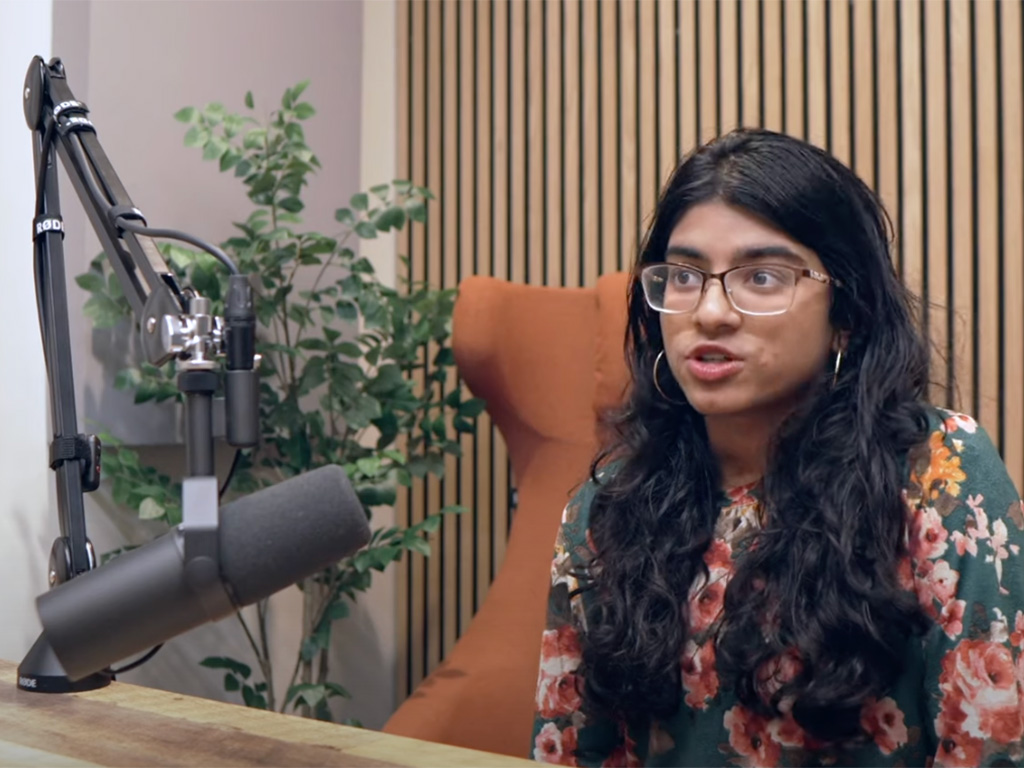A family trip to Uganda sparked a very specific goal in Ariana Chaudhary, the San Antonio teen set out on a mission to combat disparities around health care access around the world by connecting them with U.S. specialists.
Chaudhary founded the nonprofit Access to Specialist Knowledge in 2022, seeking to put health care workers in underserved areas, such as Sub-Saharan Africa, South America, and South Asia, in touch with U.S.-board-certified medical specialists for assistance in medical specialty cases.
On this week’s episode of the bigcitysmalltown podcast, producer Cory Ames talks to Chaudhary about the inspiration for the nonprofit and how it connects health care workers around the world with expert medical opinions.
“The biggest inspiration for ASK started from exposure to the issue,” Chaudhary said. “I traveled to Uganda with my family, and due to an injury we had to visit one of the clinics there… It was the first time I saw the stark contrasts from the health care I was accustomed to in the U.S.”
Chaudhary recalls seeing only two nurses handling hundreds of patients, performing medical practices and treatments that seemed outside of their expertise.
“I was 14, I had no clue what to do but I wanted to do something,” Chaudhary said. “I reached back out to Nurse Florence — the nurse I had come in contact with — to learn more about the patients she sees, the difficulties that she faces on a day-to-day basis… and throughout that talk she shared with me a few of the cases that had been particularly challenging.”
This first conversation led to Chaudhary contacting her own pediatrician to ask for advice on a young patient who suffered from partial paralysis. She passed along a note from her doctor recommending anti-seizure medication, which turned out to help this patient.
Within two years, ASK had assisted in more than 35,000 medical cases, the organization has provided services valued at $2.25 million, and donated more than $43,000 worth of essential medical supplies and technology, according to the organization’s website.
Late last year, Chaudhary also landed a $10,000 grant from the National Society of High School scholars to continue expanding ASK’s reach.
“Public health teaches us to ask; is it OK that we are letting these deaths happen when they are completely preventable? Is it OK that we are letting geography dictate whether somebody has a right to live, whether somebody has a right to good health?” Chaudhary said. “No, this isn’t OK, because we have the technology, we have the resources, we have the knowledge. The only thing missing is the connection.”
She has also focused her efforts in her hometown, where she started the Neighborhood Health Screening Club to help provide services to low socio-economic and immigrant populations in the city.
Chaudhary suspects her young age allowed her to find the boldness necessary to turn the sense of helplessness she felt into the courage to find a solution.
As the organization continues to evolve and as word about the nonprofit has spread, her team has worked to streamline its operations. Chaudhary developed a system so that health care workers around the world can submit cases online and select the specialist they think would be ideal for their specific needs.
Chaudhary attributes the growth of the organization to the networks she has built locally as a student at Northside Independent School District’s Health Careers High School, at the Audie L. Murphy VA hospital where she volunteers, and at UT Health San Antonio where she is part of the Voelcker Biomedical Research Academy.
Now as she approaches her senior year in high school, she hopes to continue to grow connections and opportunities for underrepresented communities. As for career plans, she hopes to go to medical school and major in public health to one day be one of the specialists able to aid communities in need.
“Before starting ASK I had this perception that meaningful impact could only occur to people who are credentialed, who are the most properly equipped to help, but I learned that I did and I could,” Chaudhary said.
